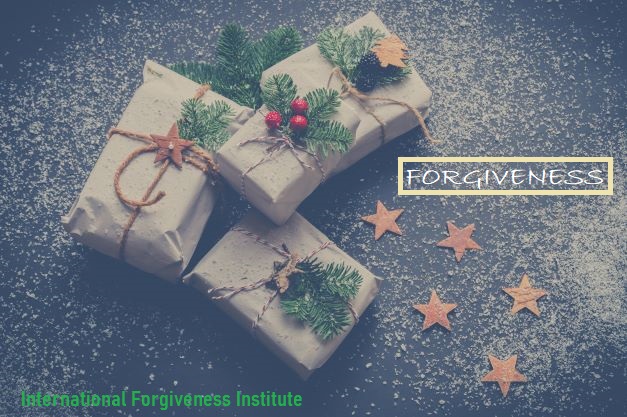Tagged: “Why Forgive?”
FORGIVENESS IS A GIFT
Over the past 20 years, Joe Daguanno has climbed the corporate ladder at the Mid-West Family of Companies to become Chief Profit Strategist – Partner. That means he is a media, branding, and advertising professional who excels at revenue generation. He’s also a pretty good, and consistent, blogger.
What’s up in the Cosmos? is the title of Daguanno’s personal blog that he has been writing for the past dozen years. His recent Dec. 20 blog post was titled “The Gift of Forgiveness.” Here’s a brief excerpt:

Joe Daguanno, Chief Profit Strategist – Partner, Mid-West Family of Companies
Forgiveness is a gift. It’s love. It’s generosity. It’s mercy.
As we give this gift, we heal.
Holding a grudge acts like a tourniquet to the flow of healing. It closes the heart and the wounds remain open.
Real forgiveness takes strength. It takes courage. It takes honesty. It takes time.
But it’s worth it.
So very much.
Daguanno’s depth of perception about forgiveness developed several years ago when he met Dr. Robert Enright, forgiveness research pioneer and founder of the International Forgiveness Institute (IFI). That encounter led Daguanno to spearhead development of a series of public service announcements that were broadcast hundreds of time on Wisconsin Public Radio and by numerous commercial radio stations throughout the Midwest—all at no cost to the IFI.
As his title references, Daguanno is a partner in Mid-West Family of Companies—an alliance of more than 40 radio stations covering 8 separate geographic markets–all assembled by the late Dr. William Walker and his son Thomas Walker. Dr. Walker co-founded the IFI along with Dr. Enright in 1995. Thomas Walker continues to provide the IFI with both financial and hands-on support through the Walker Family Trust.
Read Daguanno’s full Dec. 20 blog: “The Gift of Forgiveness.”
Consider Giving the Gift of Forgiveness This Year
In the season of giving, one of the most beautiful gifts you might consider giving is forgiveness. The ideas that forgiving is a gift to those who have hurt you sometimes gets forgiveness into trouble. In other words, people think it is irrational to consider offering a gift to those who are unfair. The typical reasons for this resistance to forgiveness as gift-giving are these:
- It is dangerous to reach out to those who act unfairly because I am open to further abuse.
- My gift-giving might be a signal to the misbehaving others that their actions are acceptable, which they are not.
- Gift-giving to those who acted unfairly seems counter-intuitive to my own healing. I need to move on and not focus on this other person.
 The ideas above can be countered this way: With regard to (A), you do not necessarily have to reconcile with an unrepentant person who keeps harming you. You can give your gift from a distance, such as a kind word about the person to others or an email so that you can keep your distance if this is prudent to do so. With regard to (B), you can forgive and ask for justice. Forgiving never means that the other just goes ahead as usual with hurtful behaviors. In other words, if you decide to forgive, you can and should ask for fairness from the other person. With regard to (C), forgiveness will seem counter-intuitive as goodness to those who are not good to you only if your focus is entirely on justice or a fair solution to the problem. If you begin to see that mercy (in the form of forgiving) and justice can and should exist side-by-side, then perhaps this idea of forgiveness as a contradiction or as inappropriate or as somehow odd may lessen in you.
The ideas above can be countered this way: With regard to (A), you do not necessarily have to reconcile with an unrepentant person who keeps harming you. You can give your gift from a distance, such as a kind word about the person to others or an email so that you can keep your distance if this is prudent to do so. With regard to (B), you can forgive and ask for justice. Forgiving never means that the other just goes ahead as usual with hurtful behaviors. In other words, if you decide to forgive, you can and should ask for fairness from the other person. With regard to (C), forgiveness will seem counter-intuitive as goodness to those who are not good to you only if your focus is entirely on justice or a fair solution to the problem. If you begin to see that mercy (in the form of forgiving) and justice can and should exist side-by-side, then perhaps this idea of forgiveness as a contradiction or as inappropriate or as somehow odd may lessen in you.
Forgiveness can be a gift in these ways:
- As you forgive, you are giving the other person a second chance at a trustworthy relationship with you. Of course, trust takes time to develop, but forgiveness opens the door, even if a little, to trying the trust-route with the other who behaved unjustly.
- Forgiveness can be a merciful way of showing the other what the injustice actually is (or was), making possible positive change in the other. Those who behave badly and are offered this mercy may begin to see the unfairness more clearly and have the inner conviction that change indeed is necessary.
- Forgiveness can be a gift to yourself as you shed abiding anger that could have been yours for many years. You have a second-chance at stronger mental health.
- As you reduce toxic anger, this actually can be an aid in strengthening your relationships with people who were not the ones who acted badly. After all, when people carry around a lot of anger in their hearts, they can displace that anger onto unsuspecting others. Your forgiving one person, then, can be a gift to others who do not have to endure your displaced anger.
So, then, what do you think? Do you see that in the season of giving, one of the most beautiful gifts you might consider giving is forgiveness?
![]()
What was your biggest surprise when you started to do research on forgiveness therapy?
I would say the biggest surprise was how effective forgiveness therapy is in the context of very deep trauma caused by other people’s unfairness. Forgiveness therapy seems to be even more effective in reducing clinical levels of anger, anxiety, and depression than other models of psychotherapy that preceded forgiveness therapy within the social sciences. As just one example, the Freedman and Enright (1996) study showed that incest survivors, upon forgiving, went from clinical levels of depression to non-depressed status and this continued at the one-year follow-up. The reference to this work is as follows:
Freedman, S. R., & Enright, R. D. (1996). Forgiveness as an intervention goal with incest survivors. Journal of Consulting and Clinical Psychology, 64(5), 983-992.
Ukrainian Research Project Verifies Benefits of Forgiveness in Military Conflict Zones
A just-published scientific study has documented significant mental health benefits derived by Ukrainian citizens who practice forgiveness compared to those who are less willing to forgive. Those findings, according to the authors, will be especially useful for providing appropriate psychological assistance for those adversely affected by the ongoing war with Russia.
Although the Russian invasion of Ukraine began on Feb. 24 of this year, the war in eastern Ukraine has been ongoing since 2014 when a political coup overthrew the pro-Russian government. Since then, more than 14,000 people have been killed in the eastern Ukraine region of Donbas in warfare between ethnic Russians and the Ukrainian military.
That fighting has caused an obvious deterioration of socio-economic living conditions for all Ukrainians. As the armed conflict has intensified, so has the occurrence and severity of mental health issues including depression, psychosomatic diseases, anger and stress-related illnesses, trauma, alienation from friends and relatives, aggressive and antisocial behavior, and criminal activities.
What role the concept of forgiveness can play in a military conflict zone is poorly understood and has never been systematically investigated—until now. A new research report, Forgiveness as a Predictor of Mental Health in Citizens Living in the Military Conflict Zone (2019-2020), was published in the most recent issue of the Journal of Education Culture and Society.
The research was conducted during the years 2019-2020, prior to the Russian invasion. It was authored by Svetlana Kravchuk, a psychologist, and Viacheslav Khalanskyi, a psychotherapist, both of whom practice in Kyiv, the country’s capital city.
Study participants included 302 Ukrainian citizens, half living in the volatile eastern part of the country (where most of the pre-Russian invasion fighting took place), and half living in the more tranquil central part of Ukraine. Using eight different clinically validated scientific tools, the researchers were able to verify the strategic role forgiveness can play in the emotional health of conflict victims.
Here are some of their findings (direct quotes from the report):
- The obtained correlations show that the more a person is prone to forgiveness, the less anxiety and depression a person has.
- A person with a high tendency to forgiveness is characterized by higher levels of decisional forgiveness, hope, emotional forgiveness, tolerance and acceptance of others, mental health, happiness and life satisfaction, as well as tolerance for others’ mistakes.
- The more pronounced degree of tendency to forgiveness is correlated with less pronounced degree of anxiety and depression.
- Hope, happiness, life satisfaction, and tendency to forgiveness can allow citizens living in eastern Ukraine to recover quickly from psychological trauma, contribute to the successful overcoming of negative effects of military conflict and functioning successfully.
According to the authors, the practical value of this research lies in expanding and deepening the understanding of the “phenomenon of forgiveness” and, in the process, developing forgiveness therapy techniques that will work in the mental health sphere throughout Ukraine.
Learn more:
- Read the full report about the role of forgiveness in Ukraine’s military conflict.
- Forgiveness as a Missing Piece to Peace Between Ukraine and Russia (Psychology Today).
- Here’s What You Can Do to Help People in Ukraine Right Now (Time).
I am angry at my partner, but the anger is not deep. I am more annoyed than really bothered. If I had to put a number on my anger from 1 to 10, I would give it a 3. Do you think I need to forgive, given that my anger is not intense?
There are different reasons to forgive. You could forgive for your own emotional well-being. You could forgive, on a higher moral level, for the good of the other and the good of the relationship. It does not appear that you need to forgive for your own emotional well-being, given how low your anger is. Therefore, you still can forgive so that the other feels better, so that you communicate better together, and so that your relationship becomes stronger.



